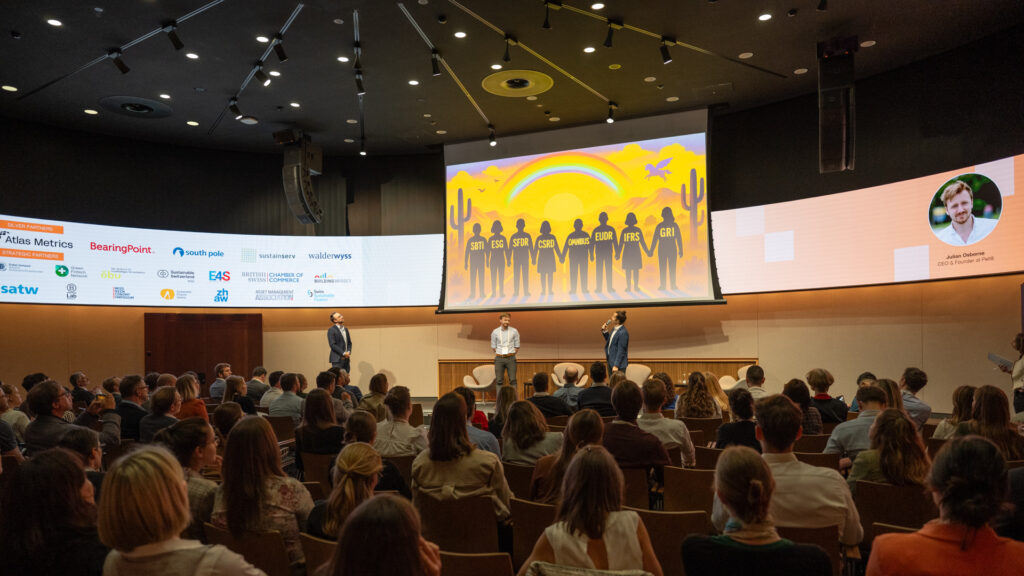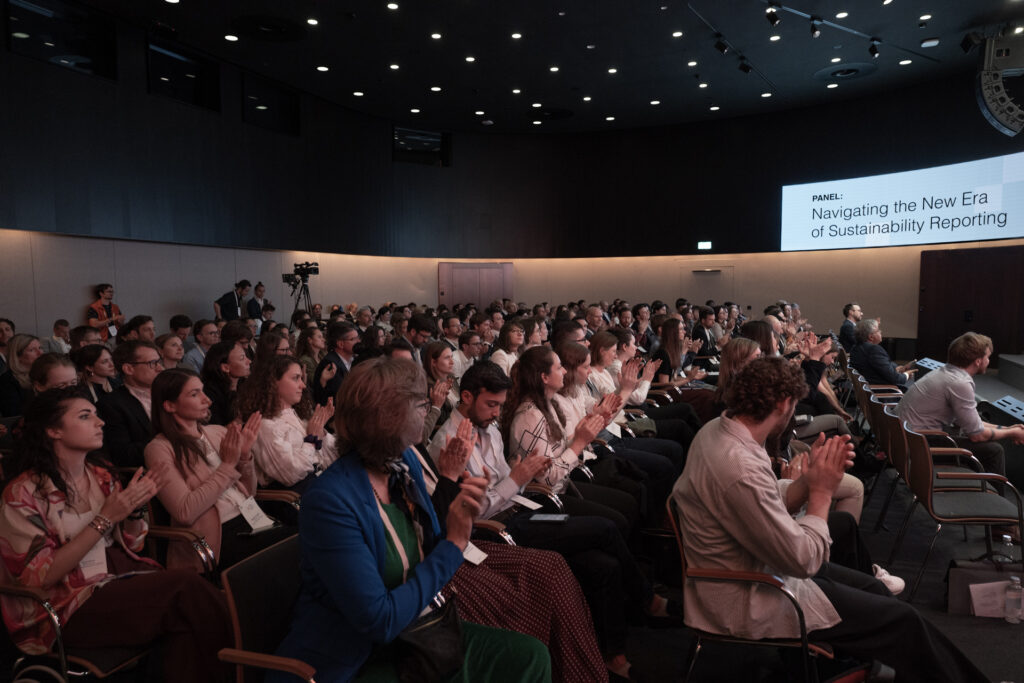Turning Insight into Action: Focus Session Highlights from SCRF 2025
Expert-led focus sessions explored how to turn climate reporting into meaningful organisational change. From regulation and data to risk and carbon removals, a clear message emerged: reporting is just the start—real impact depends on legal, technical, and cultural readiness.
Zurich, 14 May 2025 – The Swiss Climate Reporting Forum 2025 brought together over 250 sustainability professionals for a full day of dialogue, learning, and strategic exchange. While the plenary sessions set the tone with urgent calls for action, it was the eight expert-led focus sessions—each hosted by a key Forum partner—that translated vision into practical pathways.
These breakout discussions addressed pressing questions around regulation, data systems, climate risk, education, and the role of carbon removals. Across themes, the sessions reflected a shared understanding: reporting is only the beginning. The real challenge lies in preparing organisations—legally, technically, and culturally—for a future defined by both risk and accountability.
Legal, Regulatory and Assurance Readiness
Two sessions addressed the shifting legal and regulatory landscape for sustainability disclosures. Walder Wyss, provided a comprehensive overview of Swiss disclosure obligations and their alignment with EU standards such as the CSRD and ESRS. Participants examined the legal risks of non-compliance, the need for early legal engagement, and the increasing scrutiny of greenwashing claims.
In parallel, Sustainserv led a practical session on climate disclosure assurance, focusing on the application of SBTi and ISSB standards and audit-readiness across governance, strategy, risk and metrics. Participants explored what “reasonable assurance” looks like in practice and discussed the documentation and methodology challenges facing Swiss companies.
Transition and Climate Risk
Physical climate risk and transition planning were central topics in two additional sessions. South Pole hosted a session on building credible Climate Transition Plans (CTPs). They stressed the importance of embedding physical risk analysis, governance, and financing into transition plans. CLIMADA’s digital twin modelling demonstrated how organisations can quantify and plan for flood-related financial impacts.
From a different perspective, CelsiusPro, together with Asteria Investment Managers and LGT Capital Partners, examined how climate risks are influencing investment decisions and insurance strategies. The session addressed scenario modelling, data availability, and the business relevance of chronic and acute risks—underscoring that adaptation is now a board-level concern.
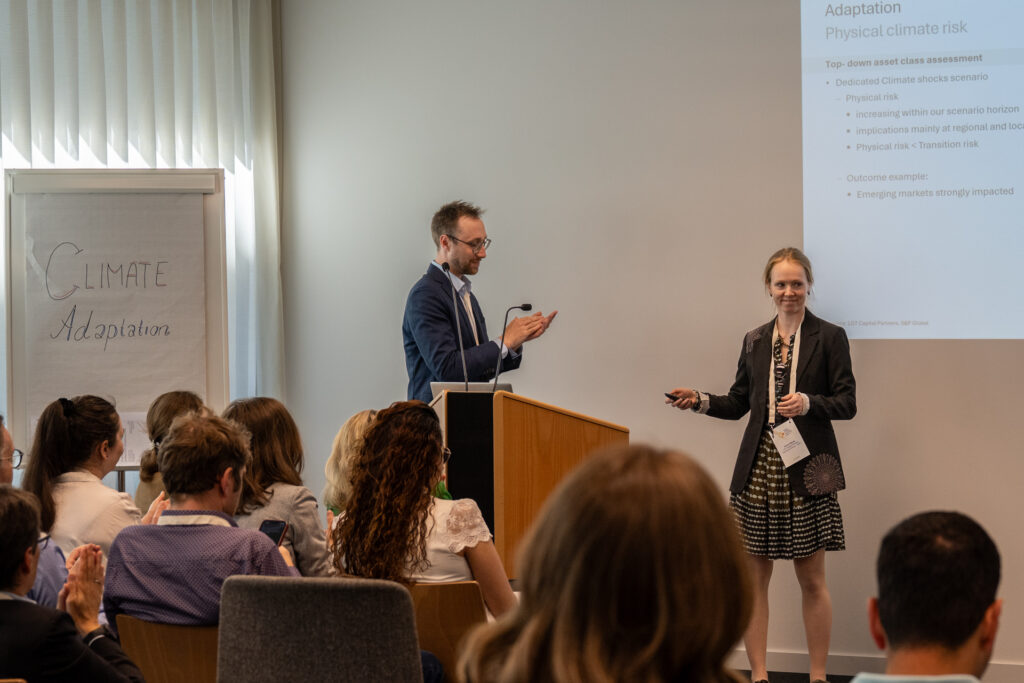
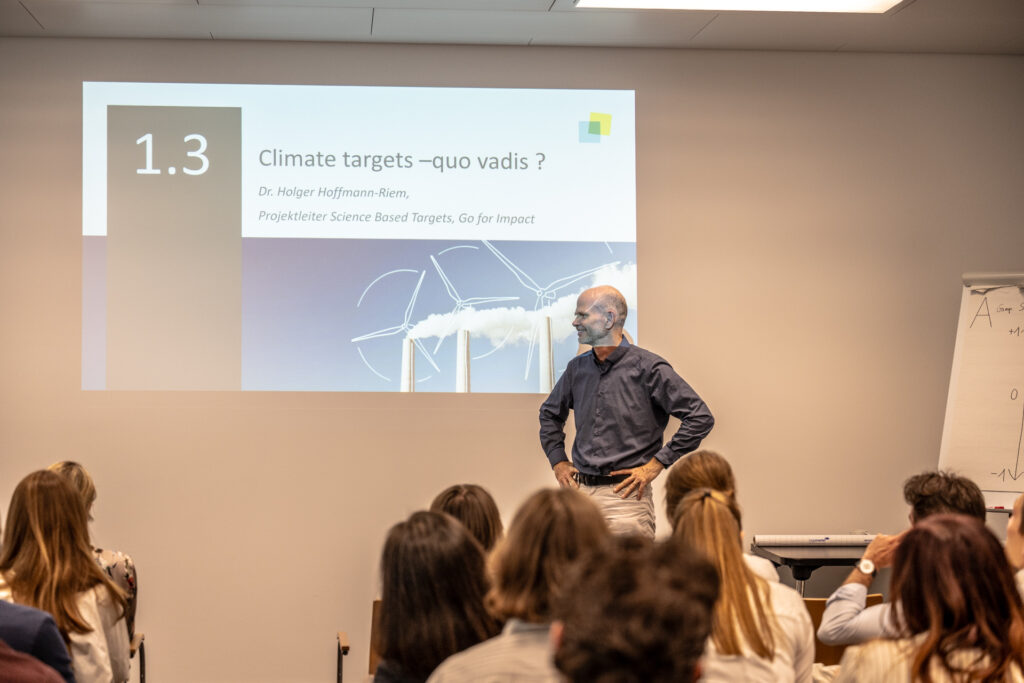
Enabling ESG Integration at Scale
Sessions also focused on the systems and skills needed to support ESG reporting at scale. Atlas Metrics introduced its ESG data automation platform, highlighting the growing volume and complexity of required disclosures. With some companies managing over 100,000 ESG data points, automation and integration were presented as both a necessity and a strategic advantage.
BearingPoint’s session centred on how organisations can move from compliance to ESG integration. Using a maturity model, they helped participants assess where they are on the ESG journey and identify opportunities for embedding sustainability into planning, performance, and incentives.
Meanwhile, Pelt8 convened a discussion with academic leaders from HSG, ZHAW, and ETH on how education and upskilling can bridge the sustainability talent gap. The session highlighted the importance of interdisciplinary thinking, real-world experience, and stronger corporate-academic collaboration to ensure future professionals are equipped for regulatory and strategic challenges alike.
Durable Carbon Removal as a Strategic Priority
Finally, SIX and Carbonfuture led a forward-focused session on integrating durable carbon removals (CDR) into corporate net zero strategies. With regulatory frameworks such as the Swiss Net Zero Pathways Directive and the EU Carbon Removal Certification Framework on the horizon, the session made a compelling case for early action. A case study from Partners Group demonstrated how leading companies are already incorporating removals into procurement and sustainability reporting, supported by digital MRV (Monitoring, Reporting, Verification) systems for transparency and traceability.
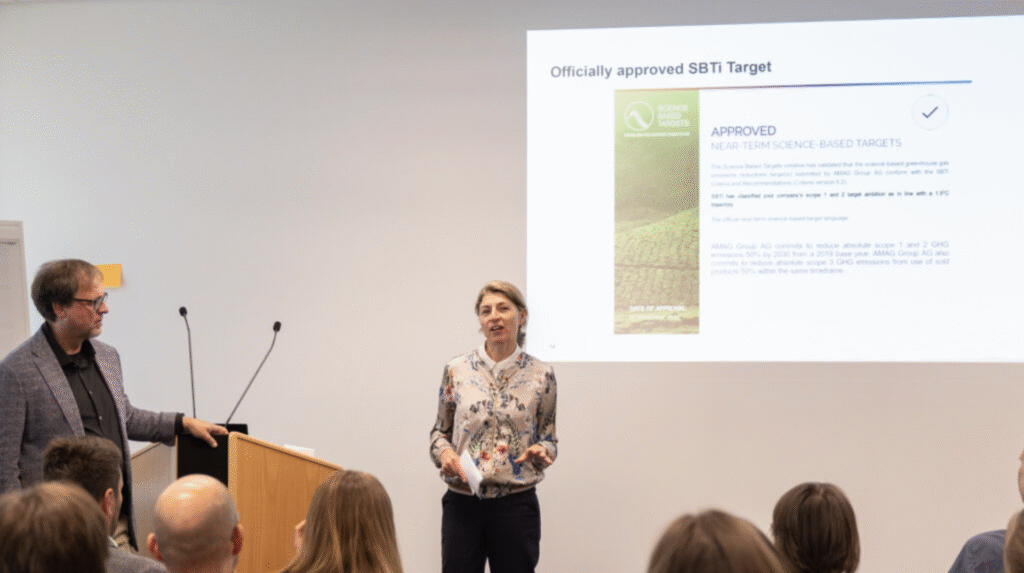
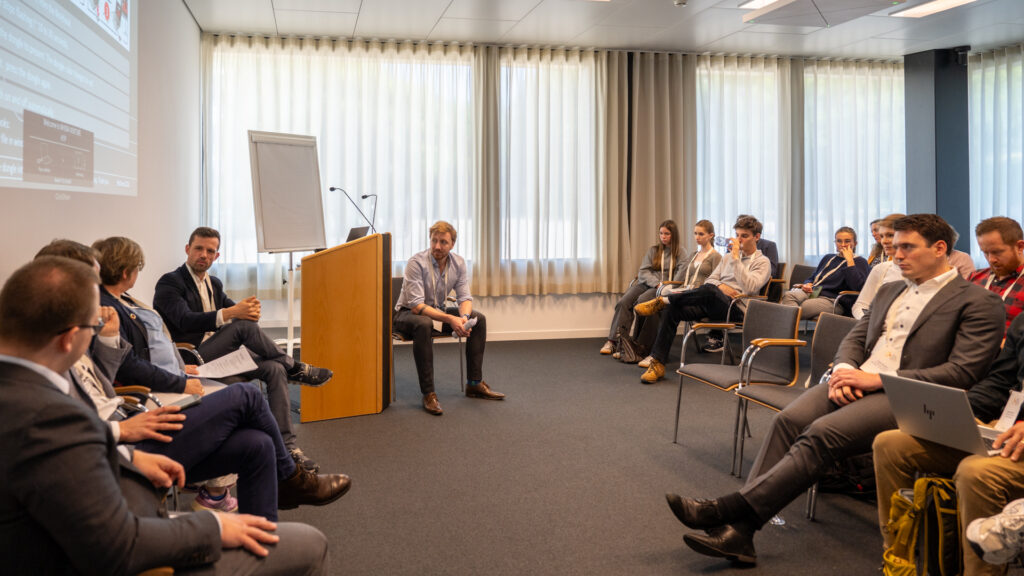
From Reporting to Action: A Shared Direction
Across all eight sessions, a consistent message emerged: credible reporting must be matched by organisational readiness. Legal clarity, robust data systems, education, assurance, and climate risk integration are no longer optional—they are prerequisites for resilience and accountability.
These themes strongly reflected those raised in the day’s plenary sessions. In his keynote, Dr. Maneesh Wadhwa of SIX urged companies to move beyond emissions reporting toward action, particularly in the area of removals. Rob Cameron of Nestlé challenged sustainability professionals to act as growth enablers, not just compliance officers. And in a thought-provoking closing keynote, Dr. Claude Garcia reminded participants that the true value of reporting lies in the change it provokes.
The 2025 Swiss Climate Reporting Forum made one thing clear: Swiss organisations are not just preparing for regulation—they are preparing to lead.

